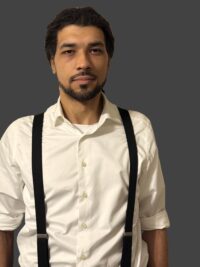Omar Khadr and responsibility
I find this article about Omar Khadr summarizes my views:
The civilized world condemns the recruitment of child soldiers. Yet Canada sits quietly by as one of its citizens, Omar Khadr, is prosecuted by the United States for war crimes he allegedly committed at age 15 as a member of al-Qaeda.
It is impossible to square. Al-Qaeda’s recruitment of child soldiers is immoral and abusive; consequently, it is immoral and abusive to prosecute as a war criminal a child recruited by al-Qaeda, and punish him accordingly. We can’t have it both ways.
Really, that’s where the argument should begin and end. No matter what horrible crimes Mr. Khadr is accused of, he was a child of 15 in a battle zone. He cannot be held responsible.
A few months ago, I watched this 2004 speech by Seymour Hersh about Iraq. Mr. Hersh was the man who uncovered the story about the My Lai massacre in Vietnam, where some 90 US soldiers killed all 500 unarmed villagers after forcing them to dig their own graves. He was also one of the first reporters to find details of torture by American soldiers in the Iraqi prison of Abu Ghraib. Mr. Hersh writes with appropriate horror about these events, but also contextualizes them so that the perpetrators are seen as dumb kids in traumatic situations, rather than monsters. His recent book, “Chain of Command”, touches on the responsibility that those who decide to go to war play in the devastation they unleash. And in the speech I referred to above, he said some things I found very moving.
Seymour Hersh says that when we send our children to war (and he refers to them as “children” and “kids”, even though they are technically adults), our officers take on the role “in loco parentis”, not only to protect the kids from physical dangers, but overwhelmingly, to protect them from their own baser instincts. As Mr. Hersh says, “There is nothing as stupid as a 20 or 22 year old with a weapon in a war zone”.
He compassionately details the transformation, in both the Vietnam and Iraq wars, of good and hopeful kids into troubled, violent adults. If this can be seen in soldiers who were over eighteen and who volunteered for service, how much more true must it be for 14 and 15 year olds pressed into service by fanatical parents? Hasn’t Omar Khadr suffered enough?
There is another reason why we should intercede on behalf of Omar Khadr, again regardless of his supposed crimes. We know that various kinds of torture have been employed at the Guantanamo prison where he was held. We know that the conditions do not meet international standards. It’s difficult to trust any “evidence” obtained this way. Other countries, such as the United Kingdom, have demanded the release of their prisoners. Omar Khadr should be offered the same treatment.
But it turns out that even if Khadr had been 30 and the Guantanamo prison were a luxury hotel, there is still further reason for Canada to intercede. It appears that the charges against him were fabricated.
Lately, it has dawned on Canadians that the United States may well have lied about its evidence against Mr. Khadr. Far from having proof that only he could have thrown the grenade that killed their soldier, the U.S. appears to have hidden the truth: that the teenage Canadian was in the company of an adult al-Qaeda fighter and was himself unarmed, on his knees and facing away from battle when a U.S. soldier shot him twice — in the back.
It troubles me profoundly that our government doesn’t recognize these compelling reasons to intervene on his behalf.
| — Adriana Mugnatto-Hamu on 2008 Mar 25 in News, Social justice & diversity |
